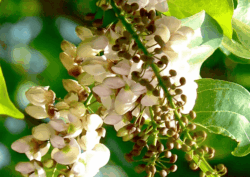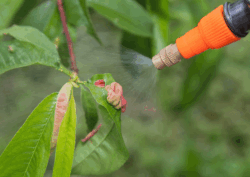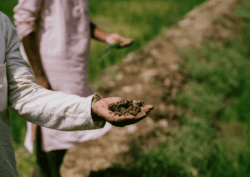In the ongoing search for natural products that support sustainability, environmental protection, and organic farming practices, karanja oil has emerged as a promising tool. Derived from the seeds of the Pongamia Glabra tree—also known as “karanjá” or “pequi”—this oil offers a range of benefits for crops and soil health.

What is Karanja Oil?
Karanja oil is a vegetable oil extracted from the seeds of Pongamia Glabra. When processed, these seeds release an oil rich in essential fatty acids, antioxidants, and bioactive compounds, making it a valuable resource not only in cosmetics and medicine but also in agriculture.
Properties of Karanja Oil
Karanja oil has a nutrient-rich composition that makes it particularly useful for agriculture:
- Essential Fatty Acids: Karanja oil contains oleic, linoleic, and palmitic acids, which are essential for plant and soil health. These acids help improve soil structure and enhance nutrient absorption by plant roots.
- Natural Antioxidants: Antioxidants such as flavonoids and phenolic compounds protect plant cells from damage, boosting their resistance to stressors like pests and diseases.
- Fungicidal and Bactericidal Properties: Some studies have shown that karanja oil has natural fungicidal and bactericidal effects, contributing to the biological control of crop diseases.

Uses of Karanja Oil
Karanja oil stands out in agriculture for its ability to naturally repel pests and diseases. Its antifungal and antibacterial properties help prevent issues like powdery mildew and rust, while also working as a mild insecticide against common pests such as mites, aphids, and whiteflies. This makes it an excellent choice for organic and ecological farming, which aims to reduce reliance on synthetic chemicals.
Additionally, karanja oil improves soil health when applied directly to the ground. It helps retain moisture and enhances soil structure—especially useful in sandy soils or arid climates. Its anti-inflammatory properties also promote a healthy environment for soil microorganisms, contributing to a balanced agricultural ecosystem aligned with organic farming principles.

Benefits of Karanja Oil in Agriculture
Karanja oil offers several advantages for both farmers and the environment:
- Sustainability: As a natural product, its use promotes more sustainable farming practices and reduces dependence on synthetic chemicals that can harm soil health and ecosystems.
- Improved Plant Health: Regular application of karanja oil can enhance overall plant vitality, increasing resistance to diseases and pests. This can lead to higher crop yields and a reduced need for chemical treatments.
- Biodiversity Promotion: When used in ecological farming, karanja oil can support greater biodiversity in agricultural ecosystems, ultimately improving long-term productivity and environmental health.

Karanja oil is a promising option in modern organic agriculture. Its natural and beneficial properties help protect against harmful insects and pests while improving crop health, reducing chemical use, and promoting more sustainable farming practices. This bioinsecticide is proving to be a valuable ally for farmers seeking more ecological and effective solutions. By adopting such alternatives, agriculture can move toward a healthier future for both crops and the environment.

